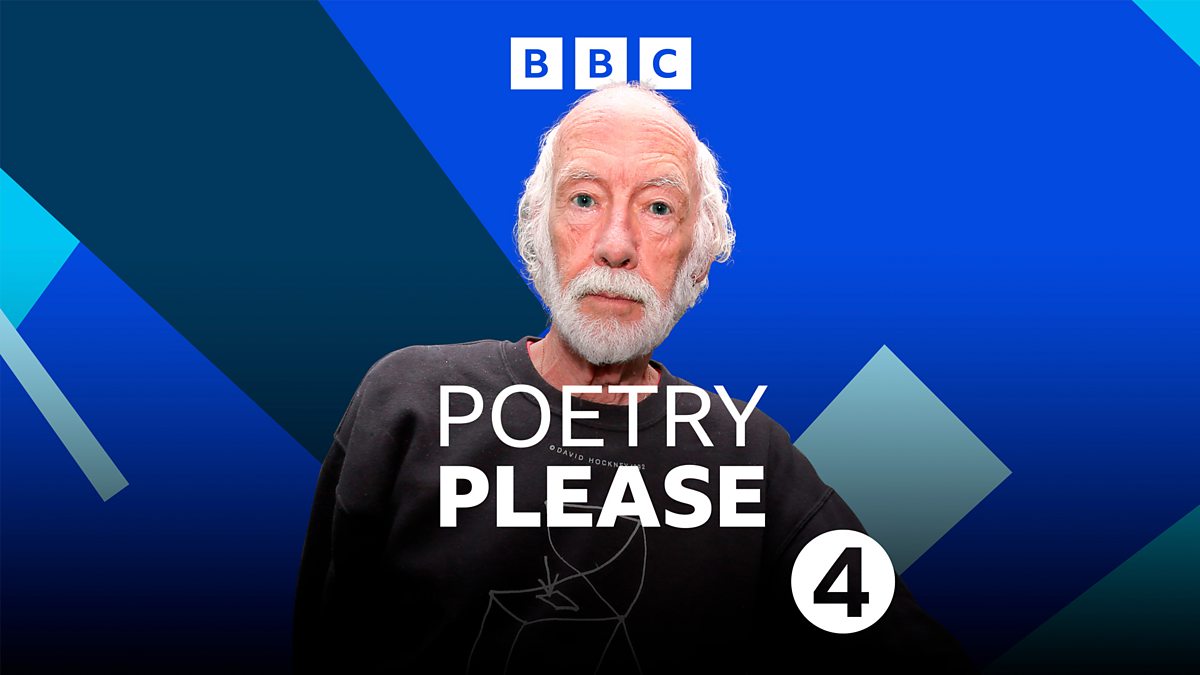Originally posted by smittims
View Post
Poetry
Collapse
X
-
As I said, Belgrove, you persuaded me. I ordered it from my local bookseller, Little Acorns, and picked it up just yesterday. It's everything you described. Go raibh maith agat.Originally posted by Belgrove View PostPicked up a copy of Simon Armitage’s latest collection, Blossomise, after hearing him read an excerpt on the equinox. It celebrates the arrival of Spring blossom with poems that are instantly accessible, full of optimism, but tinged with wistfulness at the ephemerality of the blossom season and its passing. The longer poems are punctuated by haikus:
Old Jaguar parked
under apple blossom tree
becomes snow leopard.
The collection is illustrated with prints by Angela Harding. A delightful and charming volume.
Comment
-
-
Like many programmes on BBC Radio 4, 'Poetry Please' appears to have found itself in a new slot in the schedules. I chanced on it on Tuesday afternoon while driving home. Roger McGough's guest this week was Frank Skinner and I thought he was very interesting indeed, offering insights into some familiar, and some unfamiliar poems.
Comment
-
-
Voltaire at Ferney
Almost happy now, he looked at his estate.
An exile making watches glanced up as he passed,
And went on working; where a hospital was rising fast
A joiner touched his cap; an agent came to tell
Some of the trees he'd planted were progressing well.
The white alps glittered. It was summer. He was very great.
Far off in Paris, where his enemies
Whispered that he was wicked, in an upright chair
A blind old woman longed for death and letters. He would write
"Nothing is better than life." But was it? Yes, the fight
Against the false and the unfair
Was always worth it. So was gardening. Civilise.
Cajoling, scolding, screaming, cleverest of them all,
He'd had the other children in a holy war
Against the infamous grown-ups, and, like a child, been sly
And humble, when there was occasion for
The two-faced answer or the plain protective lie,
But, patient like a peasant, waited for their fall.
And never doubted, like D'Alembert, he would win:
Only Pascal was a great enemy, the rest
Were rats already poisoned; there was much, though, to be done,
And only himself to count upon.
Dear Diderot was dull but did his best;
Rousseau, he'd always known, would blubber and give in.
So, like a sentinel, he could not sleep. The night was full of wrong,
Earthquakes and executions. Soon he would be dead,
And still all over Europe stood the horrible nurses
Itching to boil their children. Only his verses
Perhaps could stop them: He must go on working: Overhead
The uncomplaining stars composed their lucid song.
WH Auden [1907-1973]
Comment
-
-
I 'll never believe that "poetry makes nothing happen".Originally posted by vinteuil View Post... Only his verses
Perhaps could stop them: He must go on working:
....
Comment
-
-
Comment
-
-
Thanks for the heads-up, F I.Originally posted by Forget It (U2079353) View PostStarting this evening: Michael Longley's Life of Poetry - The Essay
Northern Ireland's most eminent contemporary poet, Michael Longley, talks to Olivia O'Leary about his life and reads some of his his poems.
https://www.bbc.co.uk/programmes/m0020pnt
Comment
-
-
I cannot help thinking just how pertinent to the Radio 3 of today and its once much-vaunted ethos are Shakespeare's words in The Merchant of Venice, as set by Vaughan Williams in his Serenade to Music:
I am never merry when I hear sweet music.
The reason is, your spirits are attentive.
The man that hath no music in himself,
Nor is moved with concord of sweet sounds,
Is fit for treasons, strategems and spoils;
The motions of his spirit are dull as night
And his affections dark as Erebus.
Let no such man be trusted.
The poet has already remarked:
But whilst this muddy vesture of decay
Doth grossly close it in, we cannot hear it.
Music! hark!
It is your music of the house.
Methinks it sounds much sweeter than by day.
Silence bestows the virtue on it.
(My emphases)
By "treasons, strategems and spoils" Shakespeare could well have had betrayals of so many of the principles that once governed both the thinking and priorities of those who once ran Radio 3; the "strategems" for upping listening figures; see in "spoils" the Raja figures, and add our constant unanswered plea for less announcer chit-chat adding to the general "muddy vesture of decay". "Your music of the house" can be taken as referring to Through the Night.
Comment
-
-
I'm currently rereading Brian Gardner's 'The Terrible Rain - The War Poets 1939-1945'. Names that one might not perhaps have expected to encounter in this anthology include John Arlott, Dirk van den Bogaerde (subsequently known as Dirk Bogarde). Jacob Bronowski and Enoch Powell.Last edited by LMcD; 31-07-24, 11:16.
Comment
-
-
This was a Poet -
It is That -
Distills amazing sense
From Ordinary Meanings -
And Attar so immense
From the familiar species
That perished by the Door -
We wonder it was not Ourselves
Arrested it - before -
Of Pictures, the Discloser -
The Poet - it is He -
Entitles us - by Contrast -
To ceaseless Poverty -
Of Portion - so unconscious -
The Robbing - could not harm -
Himself - to Him - a Fortune -
Exterior to Time.
Emily Dickinson 1862 Published 1929
The third quatrain is what prodded my memory, as I indicated in my Proms post. When we witness the performance of for example the Ax Trio in its excellence it only draws attention to the relative impoverishment of lesser mortals' attempts. 'Entitles' is a bit harsh, but realistic in my case.Last edited by Padraig; 03-09-24, 15:15.
Comment
-


Comment